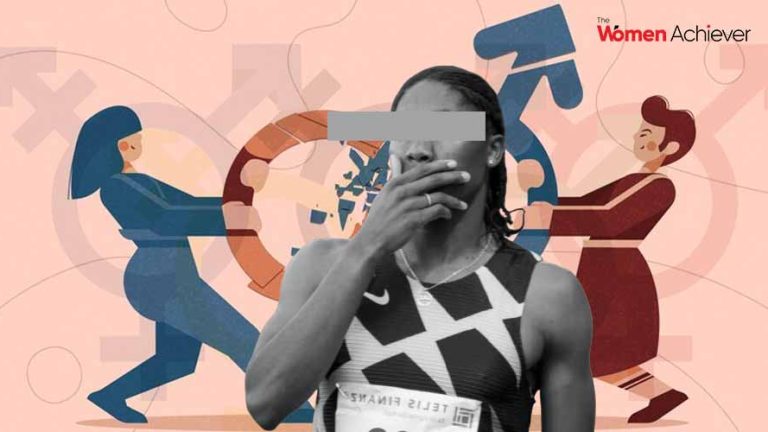Examine the moral and equitable issues raised by transgender athletes participating in women’s sports.
The inclusion of transwomen in women’s sports has emerged as a contentious and deeply complex ethical issue. At its heart lies the question of fairness, balancing the rights of transgender individuals to participate in activities aligned with their gender identity against the need to maintain an equitable playing field in women’s sports. This debate encompasses not only biological, physiological, and competitive factors but also broader societal values, including inclusivity, equity, and respect for diversity.
Transgender athletes, particularly transwomen, seek to participate in sports as a means of expressing their gender identity and being recognized for who they are. Participation in sports is a fundamental human right, one that offers personal fulfillment, community engagement, and opportunities for achievement. For transwomen, inclusion in women’s sports represents acknowledgment of their identity and a step toward broader acceptance in society. However, the debate becomes contentious when physiological differences—stemming from puberty before transitioning—create potential advantages, raising concerns about fairness in competitive settings.
One of the primary arguments against the inclusion of transwomen in women’s sports revolves around biological differences between cisgender women and individuals who transition from male to female. Even after undergoing hormone therapy, transwomen may retain physical attributes such as bone density, muscle mass, and lung capacity developed during male puberty, which can confer competitive advantages in strength, speed, and endurance. Critics argue that these advantages compromise the fundamental principle of fair competition, creating an uneven playing field for cisgender women, who are biologically disadvantaged in certain sports requiring physical dominance.
Proponents of inclusion, however, challenge these assertions by emphasizing the mitigating effects of hormone therapy. Testosterone suppression, a common requirement for transwomen athletes, reduces muscle mass, strength, and aerobic capacity, bringing their physiology closer to that of cisgender women over time. They argue that fairness is a nuanced concept, as athletic performance is influenced by a myriad of factors, including training, genetics, and determination. Therefore, singling out transgender athletes as inherently advantaged oversimplifies the complexities of sports performance.
The ethical dilemma extends beyond physiology, touching upon the philosophical principles of equity and inclusivity. Barring transwomen from women’s sports can be seen as an act of exclusion, reinforcing marginalization and undermining efforts to foster acceptance and equality. Transgender individuals often face significant discrimination in multiple spheres of life, and participation in sports offers a platform to challenge stereotypes, build confidence, and inspire others. Denying them access to these opportunities perpetuates societal inequities and contradicts the ethos of progressiveness that many sports organizations aim to uphold.
However, the rights of cisgender women athletes must also be considered. Women’s sports were historically established to provide women with opportunities to compete on a level playing field, counteracting the advantages of male physiology. Allowing individuals with retained physiological advantages, even if reduced through hormone therapy, into women’s categories could dilute these opportunities and compromise the integrity of women’s sports. This raises the question: does inclusion come at the expense of equity for women, who have fought long and hard for fair representation in sports?
The ethical complexity of the issue is further compounded by its intersection with cultural and political dynamics. In some regions, the inclusion of transwomen in women’s sports has become a focal point for broader societal debates on gender identity, sparking polarized discourse. Conservative critics often frame the issue as a threat to traditional gender norms, while progressives advocate for greater acceptance and understanding of transgender individuals. Amidst this polarization, transgender athletes frequently find themselves targeted by discriminatory rhetoric, underscoring the need for sensitive and informed discussions.
It is essential to acknowledge the human dimension of this debate. Transgender athletes are individuals with aspirations, emotions, and a desire to belong. For them, participation in sports is not merely about competition but about being recognized and valued as equals. Similarly, cisgender women athletes strive for fairness and opportunities to excel in their respective disciplines. The challenge lies in navigating these competing interests without reducing either group to caricatures or disregarding their legitimate concerns.
One possible pathway toward resolution involves creating open or mixed-gender categories for certain sports, allowing athletes to compete without restrictions based on gender identity. This approach could provide an alternative space for inclusivity while preserving the integrity of women’s categories. However, implementing such changes requires careful consideration of logistics, athlete acceptance, and the broader implications for sports governance.
Another avenue is fostering greater research into the physiological impacts of transitioning on athletic performance. Current scientific understanding remains incomplete, and policies are often shaped by limited data and anecdotal evidence. Comprehensive studies that examine the long-term effects of hormone therapy and other medical interventions on athletic abilities could provide a more informed basis for policy decisions, reducing the ambiguity surrounding fairness.
Education and dialogue are equally vital. Misinformation and prejudices often fuel the debate, leading to unnecessary hostility and division. Promoting informed conversations that consider scientific evidence, ethical principles, and lived experiences can help bridge the gap between opposing perspectives. Sports organizations, educational institutions, and media outlets have a responsibility to facilitate these dialogues constructively.
Ultimately, the question of whether transwomen’s participation in women’s sports can be fair defies easy answers. It requires society to grapple with fundamental questions about the purpose of sports, the meaning of fairness, and the value of inclusivity. Balancing these dimensions is not merely about determining competition rules but about envisioning a world where all individuals feel valued and empowered.
The way forward lies in recognizing that no single solution will satisfy all stakeholders. Compromise, empathy, and a willingness to adapt are crucial in addressing the ethical dilemmas posed by this issue. By embracing complexity and prioritizing respect for diverse perspectives, society can strive toward a more equitable and inclusive future for sports, ensuring that the spirit of competition thrives alongside the principles of human dignity and fairness.





Add comment